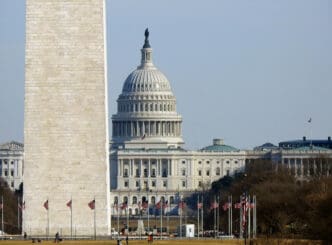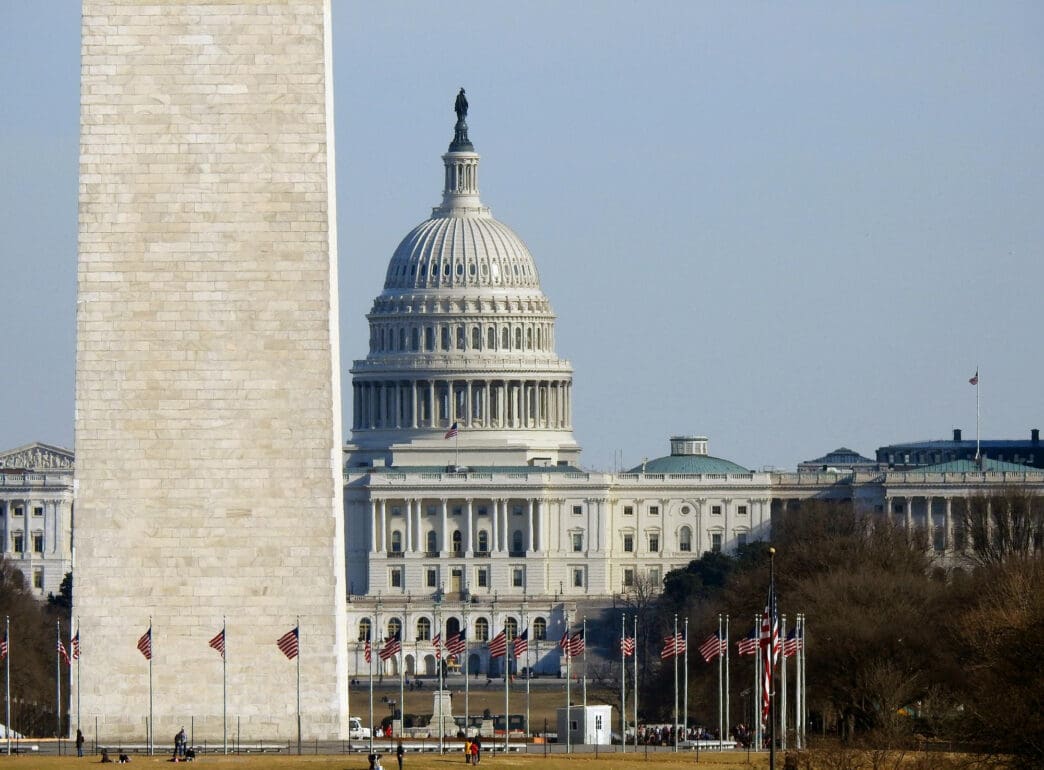Executive Summary
The Story So Far
Why This Matters
Who Thinks What?
The U.S. federal government officially shut down on October 1, 2025, after Congress failed to pass a crucial funding measure, marking the first such impasse since 2019. A prolonged stalemate between Republicans and Democrats over enhanced Obamacare subsidies prevented a deal, leaving Capitol Hill in uncertainty about the duration of the funding lapse.
The shutdown commenced at midnight after a weekslong deadlock. Republican leaders insist Democrats must agree to extend current funding for another seven weeks. However, Democrats are refusing to lend their votes without major concessions related to the healthcare subsidies.
Senators departed the Capitol with no clear path forward. The Senate is scheduled to vote again on the same Republican funding plan, which GOP leaders have vowed to reintroduce daily until enough Democrats support reopening the government. Many Democrats have publicly stated their refusal to yield, even as President Donald Trump and his budget office have escalated threats to use the shutdown to permanently reduce the size of government.
“It’s going to be very harmful for working people,” Republican Senator Josh Hawley stated after Democrats blocked the bill. “I don’t know how it ends. They don’t know how it ends. You’re asking millions of people to pay a really high price.”
Congressional Divisions
The pressure is now on Senate Minority Leader Chuck Schumer to maintain Democratic unity against the Republican push for their seven-week funding bill. This task is expected to become more challenging with each day the shutdown continues, particularly as President Trump has threatened to cancel programs favored by Democrats.
Concerns are growing within the Democratic party about the potential for irreversible damage from the White House budget office across the country. Senator Sheldon Whitehouse expressed his worries to CNN, stating, “Of course, who wouldn’t be? We have a madman in charge.” He added that Democrats need to “make sure that Trump is held responsible for all of that, pays the price for it.”
Despite the unified front, some cracks have emerged within the Democratic caucus. Senators Catherine Cortez Masto of Nevada and Angus King of Maine, who caucuses with Democrats, switched their votes to back the GOP bill shortly before the shutdown. Democratic Senator John Fetterman of Pennsylvania also supported the Republican bill and has openly criticized his party’s strategy in the funding dispute.
Lobbying efforts were observed on the Senate floor as Republicans sought to sway more Democrats. Senators Jeanne Shaheen and Maggie Hassan, both of New Hampshire, engaged in extensive conversations before ultimately voting with their party. Shaheen later explained her vote against the bill as a tactic to compel Republicans to negotiate on the Affordable Care Act (ACA) subsidies.
The enhanced premium subsidies, originally approved in 2021 as part of a Covid-19 rescue package and later extended, are crucial for making Obamacare coverage more affordable for lower-income Americans and expanding assistance to middle-class households. These subsidies led to a record 24 million sign-ups for 2025 policies. If they are allowed to lapse at year’s end, premiums are projected to increase by an average of 75% for 2026, according to the nonpartisan health policy research group KFF.
Republican leaders maintain that some Democrats are anxious about the shutdown and are seeking a resolution. Senate Republican Leader John Thune indicated he was “having conversations” with unnamed Democrats, suggesting “there is some movement there.”
However, Senator Schumer insisted that the American public would hold Republicans accountable for the shutdown due to the impending healthcare crisis. When pressed about the GOP’s plan to repeatedly reintroduce the same funding plan, Schumer stated, “Our guarantee is to the American people. We’re going to fight as hard as we can for their health care, plain and simple.”
Democratic Senator Mazie Hirono of Hawaii expressed hope that pressure would build on Republicans from their constituents who face higher health care costs if the enhanced subsidies expire. Senator Lisa Murkowski of Alaska, considered a potential dealmaker, believes there is still room for negotiation on ACA subsidies, stating, “I think we do have to talk about the impending cliff that we’re looking at with the premium tax credits.”
Shutdown Impact
The federal government shutdown will furlough hundreds of thousands of federal employees, while others deemed essential will continue to work without pay until the impasse concludes. Some employees whose jobs are not funded through annual congressional appropriations will continue to receive their paychecks.
The Congressional Budget Office estimates that approximately 750,000 federal staffers, earning roughly $400 million daily, could be furloughed. This figure could change if the shutdown is prolonged.
Americans will experience the shutdown’s effects in various ways. While essential services such as air traffic control and Transportation Security Administration operations will continue, past shutdowns have led to staffing shortages, snarled flights, and extended security lines. The status of visitor access to the more than 400 national park sites remains unclear, though some states have previously used their own funds to keep parks open. The Smithsonian museums and the National Zoo will remain open until at least October 6, utilizing budget funds from prior years.
Key benefits will largely remain unaffected. Senior citizens, people with disabilities, and others will continue to receive monthly Social Security payments. Unemployed Americans will still get unemployment benefits, provided state agencies have sufficient administrative funds. Medicare and Medicaid payments will also continue without interruption.
Medical care and critical services for veterans, including suicide prevention programs, homelessness initiatives, the Veterans Crisis Line, benefit payments, and burials in national cemeteries, will not be interrupted. However, the GI Bill Hotline will be suspended, as will assistance programs for service members transitioning to civilian life. Additionally, the permanent installation of headstones and cemetery grounds maintenance will be paused until the shutdown is resolved.
The shutdown highlights deep partisan divisions over healthcare funding, with both parties attempting to assign blame. As the impasse continues, the immediate effects are being felt by federal employees and across various public services, while the long-term implications, particularly for healthcare access and affordability, remain a central point of contention in the ongoing negotiations.








